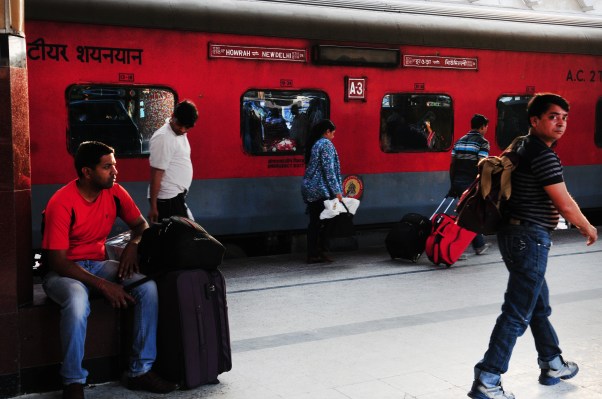Indian Railway Catering and Tourism Corporation (IRCTC), a state-run firm that offers train ticketing and catering services in India, more than doubled on its first day of trading in what was the best public debut for a local firm in two years.
The firm, the fourth public company to come out of Indian Railways, sold 20.1 million shares, or a 12.5% stake, to generate about $91.09 million for the Indian government. The Indian government retains about 87.5% stake in the firm.
Shares of IRCTC on BSE and NSE — two stock exchanges in India — rose as much as 132% to Rs 743 ($10.4), compared to its issue price of Rs 320 ($4.5). It ended the day at Rs 728 ($10.2), up 127%, giving the Indian firm a market cap of $1.65 billion. State-run Housing & Urban Development and Cochin Shipyard debuted two years ago with their offerings oversubscribed 75X.
IRCTC, which was incorporated in 1999, offers online ticketing, catering, packaged water and tourism services. The firm holds a monopoly on these train services in India.
Rail booking accounts for 24-26% of the online booking industry in India, according to industry estimates. The IRCTC, which introduced online rail booking in 2002, commanded 66% of all online train ticket booking in the fiscal year that ended in March 2018. The firm sold about 675,000 tickets each day in that year. Overall, the company sold $4 billion worth of tickets in that financial year.
Catering business alone accounts for about 55% of IRCTC’s revenue. Internet ticketing, which accounts for about 12.5% of IRCTC’s revenue, however, has the biggest profit margin — about 35%.
Indian Railways, the fourth largest railway network in the world by size, serves more than 23 million people each day. Aloke Bajpai, co-founder and chief executive of travel and hotel booking firm Ixigo, said IRCTC may soon hit $2 billion in market cap. “More power to the strong potential of train travelers in the country.”
IRCTC reported a net profit of $38.2 million in the financial year that ended in March 2019, up from $30.9 million a year before. The company, which is debt-free, had a cash reserve of $160 million as of earlier this year. The firm expects to dramatically increase its annual revenue this year.
Last month, IRCTC introduced a convenience fee on booking of train tickets that could help it add as much as $50 million to its annual revenue, said Mahendra Pratap Mall, chairman and MD of IRCTC, in an interview. He said online ticketing — especially after the introduction of the fee — is the chief area of growth for the firm.
IRCTC is charging Rs 15 (or 21 cents) for booking a ticket in a non-air-conditioned coach, and twice that for air-conditioned compartments.
“Investors have shown tremendous faith in us. It’s a great listing and we are enthused. And of course, this has put more responsibility on us to do better. We will leave no stones unturned in doing so,” he said.
IRCTC was recently given a permit to operate two private routes in India. “So far, the response has been very good. In future, we will like to operate more routes, which would help us increase our revenue,” he said.
